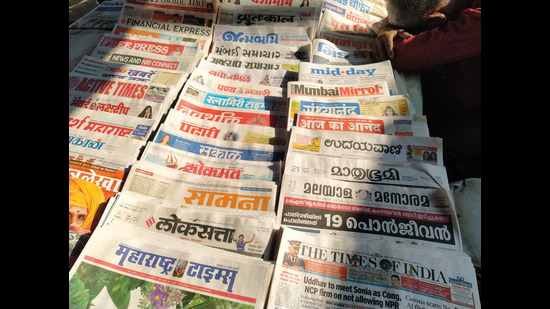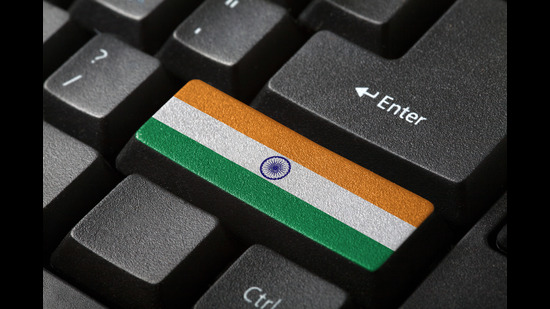Tales of patriarchy and puzzlement
The winning entries at the most recent edition of the Mozhi Prize awards draw the reader in and fill them with optimism about the form
The Mozhi Prize 2024 for short stories was won by Kallo, which is part of a collection with the same name, written by a writer from Pakistan, Sameena Nazir. The story, which was translated from Urdu by Jaideep Pandey, is relatable in many ways including for how it deals with patriarchy.

The powerful, immersive and piquant plot that turns and twists like a village lane swept me along its high-stakes but ultimately life affirming and hopeful way. It refreshes in a contemporary, political, realistic and compassionate way the trope of abandoned women in a small town finding companionship and romance in each other’s arms. I use the term ‘abandoned’ because it is old in terms of gender and social relations, as well as, in the specific context of psychological trauma, current. Much like this story.
The female protagonists, whose story is told by a female narrator, are relatable in a complex way. One of them is abandoned for another woman by the male antagonist who is a hakim (traditional herbal doctor). The other has been body-shamed for being dark-skinned and relegated by her community to a precarious position which might also come from her caste background. The two women form a friendship that soon turns into love. This sets up an archetypal tale, which begins with the flavour of gossipy transgression, explores the love relationship empathetically and comprehensively, outrages at the selfish, callous hakim who has the gall to move back in as if nothing has happened, and even satirises and pokes fun at him, and through him at this entitled behaviour in general. It serves up a sharp-as-chillies ending that shocks and elicits an amused gasp.
I liked that in terms of setting, characterisation, and treatment, this is a lovely ‘desi’ story. It was keenly attuned to the tastes of a subcontinental readership and was clearly written with the intent to engage with them. I liked that it was pungent, spicy, as transgressive as true gossip, and as emotionality goes, striking notes from pretty much all the nine rasas without lapsing into sentimentality.
--
Few prizes, all admirable for various reasons, reward the short story in India, and one of them is Mozhi. I enjoyed the Mozhi-awarded stories for 2024 (and 2023 for context), finding total immersion in the writing, and in a more general sense, also optimism about the short story in English in India.
‘Mozhi’ comes from the Tamil. It means ‘language’ or ‘tongue’. Mozhi Prize’s aims, as per its vision statement, are to foster “continuous and engaged conversation between writers, readers and critics operating in different languages”, to bring about reduction in “opaqueness between the Anglophone world and non-English Indian languages”. This will result in more translations not dependent on situations where “oftentimes, what is translated and what is not ends up being a political decision”. The word ‘political’ here, as I read it, likely refers to discriminatory or exclusionary politics, because the Mozhi-winning stories feature characters who are marginalised, don’t fit in, and are discriminated against.
Mozhi adds that, for instance, women’s writing needs to be read because they have “something unique to share with us, something no one else can tell us”, and writings from Indian languages are needed in translation (to paraphrase) in order to connect their unique worlds of experience to a wider audience. This suggests to me that Mozhi looks at translation not as a favour to the source text or writer or language. Rather, their view seems to be that translation creates valuable resources for readers -- a celebratory stance of sorts. The idea is to foster “plurality of ideas and expression”.

There is equal emphasis on aesthetic value as well. Mozhi aims to enable conversations about “what is ‘good’, what appeals to our taste, and what does not”. Its aim is to enable “critical discourse about Indian literature that is rooted in homegrown aesthetic ideas and traditions”.
The Mozhi Prize, which in 2022 was launched for Tamil translations by translators Suchitra Ramachandran and Priyamvada Ramkumar, was later expanded by them to include work from other Indian languages.
The judges for the most recent prize, Mozhi Prizes 2024, were Anjum Hasan, Anita Agnihotri and Jerry Pinto. Having read the prize-winning stories, I was struck by how the focus on inclusion, development of aesthetic taste, and celebration of plurality as well as on aesthetic delight reflected brilliantly in the selection of awarded stories. No doubt, too, the founders having spelled out their creative vision so clearly has attracted like-minded submissions.
--
In 2024, second place went to the harrowing, compassion-inspiring Aangurlata by Bimal Kar, translated from Bangla by Malini Bhattacharya.
This story has us walking along with the protagonist, a retired sex worker who has taken in the man who abandoned her as his mistress. He came to her severely ill and was cared for by her. He has now died, leaving her with the immediate goal to arrange his dignified funeral. This challenge drives the story which makes us feel, in all their complexity, her love-hate emotions towards her former lover. We see in deep detail her ordeal as she scrounges money for the funeral in the sole way open to her, leading to an examination of exploitation, indifference, and cruelty.
By empathising with the protagonist, a skill of writer and translator, the reader is made an active participant in the story, walking, choosing, and feeling with the protagonist as she makes the most of her available choices as a sex worker.
Aangurlata takes one or two turns at which a reader might remind themselves of the fact that all of life is not as bleak as shown here. What stays with a reader, though, is the redemptive compassion and self-compassion of the protagonist and her arrival at an inner balance of sorts, leaving behind a hopeful and life-affirming feeling that, to speak of myself, stayed for weeks.
Lord Cornwallis and Queen Elizabeth by Abdul Rasheed, translated from Kannada by Kamalakar Bhat, won third place.
In this story too, massive changes happen inwardly and outwardly. The story eschews the plot of the intersex person being trampled upon by their family and society. The narrator is accepted matter-of-factly by their mother. They successfully conceal their identity from their friends, eliminating any danger of being bullied or sexually abused. Growing up, the narrator finds a steady partner with whom they go on to share a steady relationship.
These things – abandonment, physical violence, and unstable love relationships – don’t happen to the narrator in the story, and it must be acknowledged that they do happen in the real life of many queer people. When it comes to literary depiction, these situations have been explored in many good stories, but not adding them in this one opens up other possibilities, much to the reader’s gratification.
Its narrator, a school-going child who is intersex, navigates their evolving relationships with school friends and, more so, their complex feelings about their role model, Elizabeth, which change as the narrator is growing up. I was struck by the rendition of the tenderly nuanced attitudes, some of which were mysterious to me, of the narrator towards their teacher. These are largely present in subtext. The narrator, as they understand their developing identity, likes in a non-sexual way and also to some extent obsesses about Elizabeth. The narrator’s recollections of observing their teacher and her lover in public seem dream-like, as if echoing the disorientation of the narrator themselves as they explore who they are and how they will relate to others. The narrator is living through their own life and also through Elizabeth’s.
--
In these stories, the protagonists stand outside the general idea of mainstream or acceptable. The stories are, in their own way, explorations of patriarchy and toxic masculinity, something that we all have received and meted out in our own ways. Each mentions callous treatment by a male figure. Each is rooted in South Asian societies, particularly small towns, and in recent times or current situations. And each uses simple language to explore complex and layered life situations. The stories read like they were originally written in English. As one of the judges Anjum Hasan also says in her citation: “[T]he malleability of English impresses, how in the most skilled hands – admittedly rare but in evidence in this list – it can become a colloquial Indian tongue”.
Each story has a strong plot, memorable characters, and involves high stakes – the epitome of ‘stories in which something major happens’.
Suhit Bombaywala’s factual and fictive writing appears in India and abroad. He tweets @suhitbombaywala.
All Access.
One Subscription.
Get 360° coverage—from daily headlines
to 100 year archives.



HT App & Website







